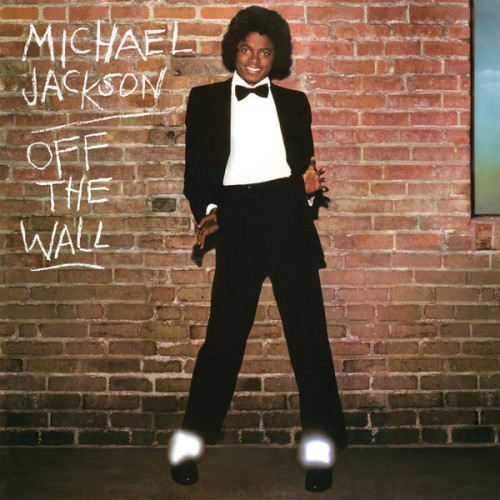
Yesterday,Michael Jackson’s 1979 album Off The Wall celebrated its 30th anniversary. The album was reissued on CD with its full cover art for the first time in the new millennium in the US. A special bonus edition also features Spike Lee’s documentary film ‘Michael Jackson’s Journey From Motown To Off The Wall’. Personally I’ve come to view Off The Wall this way: the people who love MJ’s most musical aspects love this album,whereas those who appreciate him more as a commercial phenomenon showcase his finest album as being 1982’s Thriller.
Before 1979,Michael Jackson was mainly the charismatic lead singer for The Jackson 5/Jacksons. He had a four album solo career on Motown in the early/mid 70’s too. Still,that album was very much connected to the music he was doing with his brothers. It was becoming more apparent as he grew that he would again have a solo career. Not sure if anyone anticipate that after 1979,MJ would become the Sammy Davis Jr. of his day-only one where the post civil rights era really allowed him to shine more as performer. On that musical level,here’s the content of a review I wrote about it six years ago.
In terms of someone like Michael Jackson,different phases of his career will impact on people differently. For some reason this album pretty much locks into my own brain as his general peak of his career. Despite the record breaking success he’d have in the 80’s,this album stands as one that says the most about his musical character. We all know the history. Mike meets up with Quincy Jones during the production of [[ASIN:B000XUOLNO The Wiz]],they begin recording this album with the help of some of the biggest musicians and songwriters of the era and so begins a new chapter for him.
No longer would Mike’s solo career be an adjunct to that of his brothers. And while still a functional member of The Jacksons at the time of this recording,his own self identity was being developed here as well. This album has some very unique hallmarks. It’s heavy on production but musically focused. It’s sophistifunk of the highest degree but heavier on the funk than the sophistication. Most important,pop considerations are very important here but Mike is not yet defining himself as the King Of Pop.
“Don’t Stop ‘Til You Get Enough”,which despite may hearings flaunts it’s obvious late 70’s Barry White influence heavily couldn’t be a better way to start this album.”Rock With You” of course owes it’s grooving sleekness in part to Rufus’ Bobby Watson’s fluid bass line as much as it does to Mike’s elastic vocal. Now “Working Day And Night” is one of the most inspired and strong minded funk jams Mike ever made. He’d never quite got on the one in the same way before or after this.
“Get On The Floor” and the title song both work the disco floor,the former heavier on the funk end and the latter more on the urban dance side moving to the post disco era a bit more. Over the years I always say his cover of McCartney’s “Girlfriend” as a week link but it’s a vital straight ahead pop piece with some modern R&B/funk production elements for a little spiciness. “She’s Out Of My Life”,a very sad ballad Mike actually cannot keep a dry eye to himself is a rich interpretation of an orchestral,non rhythmic ballad.
Of course to my ears the finest ballad tune here is the more mid tempo “I Can’t Help It” from Stevie Wonder-featuring both Wonder’s unique way with chord progressions and electronics that Mike takes to maximum vocal effect. “It’s The Falling In Love”,a mid tempo pop/soul type duet with Patti Austin comes to “Burn This Disco Out”,a steamy horn funk closer finding Mike throwing down his best and underused bass vocals.
There are many people who to this day contest that this is Michael Jacksons finest solo album for a musical perspective. And I cannot say there isn’t a point there. Something about the music he made with and without his brothers circa 1978-1981 had a certain flavor to it that I don’t honestly think he ever fully recaptured. This period,culminating in a way with this and The Jacksons [[ASIN:B001BKMC9K Triumph]],recorded around the same time but released the following year, really allowed Mike to fully take command in interpreting his own compositions
But it also let him be the most involved with the creative environment provided via Quincy Jones and his engineer Bruce Swedien. This wasn’t a Michael Jackson who wasn’t very concerned about breaking records,media attention,adulation of fans or indulging in potentially scandalous behavior. This WAS a Michael Jackson who had matured into adulthood creatively. And on that front was in a similarly energized state as he was a decade earlier when the J5 first debut for Motown. As such this album is as much as the conclusion of something as it was a new beginning. And that enthusiastic quality drips from every pore of the music you’ll find here.
Off The Wall winds up being one of those albums where one’s perception of it evolves with time. Its instantly lovable,especially for any funk and post disco enthusiast. Considering the artist itself and the primary bass player here Louis Johnson aren’t with us anymore,I now look at the album this way. It represents the era when each Michael Jackson/Jacksons album was distinctly different. This album really prioritized live strings,horns and a rhythm section. The same personnel also produced the more electronic boogie sounding number “Sunset Driver” for this session. Shows just how distinctive MJ hoped this to be.
